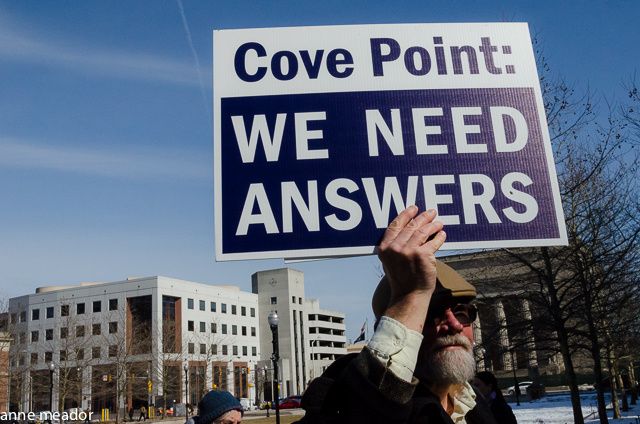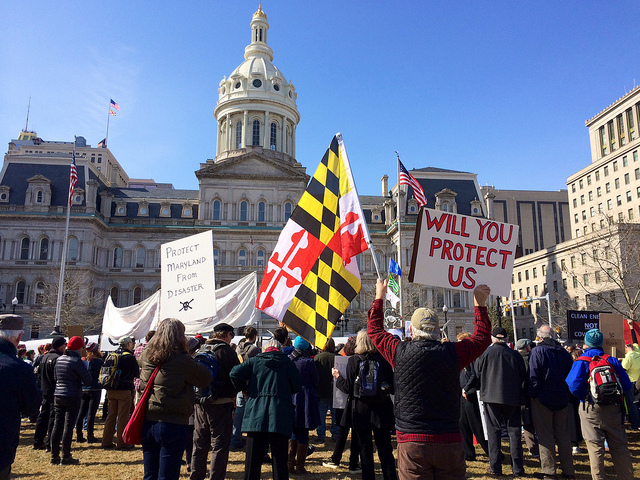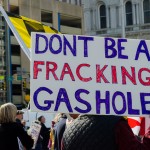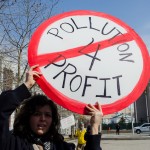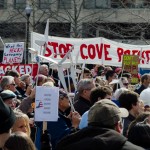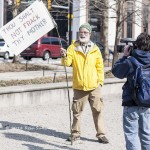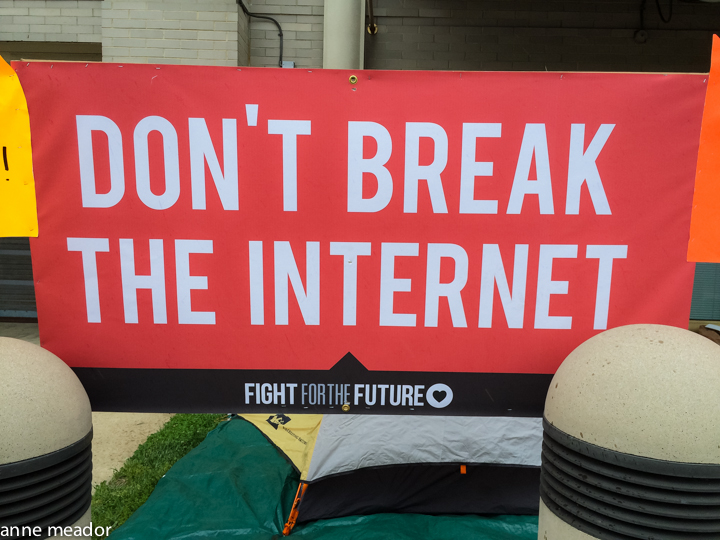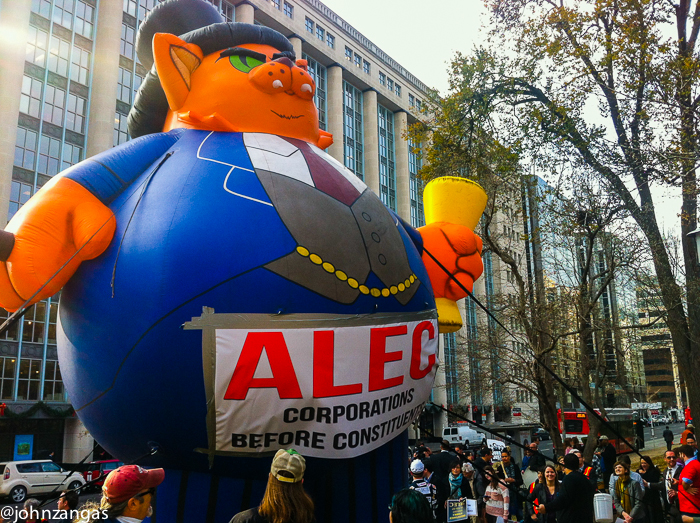by Anne Meador
Opposition to a proposed natural gas liquefaction facility in Southern Maryland has taken on a added dimension with an influx of new participants attending a Baltimore rally on Thursday. People from Northeast and Mid-Atlantic states, believing that they too will be affected by the Cove Point terminal expansion, joined hundreds from around Maryland in a demonstration organized by environmental, anti-fracking and climate change groups.
“This is where Maryland makes its climate change stand,” said state representative Heather Mizeur to a crowd at War Memorial Plaza in Baltimore.
The occasion for the rally was a meeting of the Maryland Public Service Commission to begin its review of Dominion Resource’s application to build a 130-megawatt gas-fired liquefaction complex at Cove Point. Dominion has signed contracts with gas companies from Japan and India to export natural gas from Cove Point to those countries.
While Calvert County residents fear that the plant would not be safe and engulf the small community in smog, they also realize that it has larger implications. “This issue has a lot of layers,” said Fred Tuttman of Patuxent Riverkeeper. “Look at the totality of it, the extended impacts it would have.”
Speakers at the rally, organized by Chesapeake Climate Action Network (CCAN), Environment Maryland, Citizen Shale and many other environmental groups, contend that Cove Point is problematic from a number of angles–from safety concerns at Cove Point itself, to the source of the gas to be exported, to the labyrinth of infrastructure needed to transport gas, to the carbon emissions that would result.
“If this Cove Point facility is built,” said Ted Glick of CCAN, “the greenhouse gas emissions that we spew into the atmosphere through the whole process, starting from fracking to get the gas, to sending it over to Asia, re-gasifying it and putting it into the tanker vehicles–it’s worse than coal in terms of greenhouse gases.”
Demonstrators repeatedly called on Governor Martin O’Malley and U.S. Senators Ben Cardin and Barbara Mikulski to compel federal regulators to conduct a comprehensive Environmental Impact Statement (EIS) for Cove Point.
Dominion Resources has resisted a full EIS and pointed to economic benefits such as construction jobs. Rev. Lennox Yearwood of the Hip Hop Caucus warned, however, that people shouldn’t “sell their souls in essence for a few jobs.”
“The climate crisis is our lunch-counter moment of the 21st century,” he said. “If we don’t win this one, we all lose. Yet now Dominion is standing at Maryland’s door, trying to block its path to a fossil-free future.”
Objections to Cove Point have broadened to encompass the facility’s consequences for the greater region. People from New York, Pennsylvania, West Virginia and Delaware bussed in to Baltimore because they believe that the Cove Point project will affect them as well.
Maya van Rossum of Delaware Riverkeeper said that Cove Point would cause an escalation of natural gas drilling by hydraulic fracturing. Fracking threatens the Delaware River, which supplies water to 17 million people.
Rebecca Ruggles, director of Maryland Environmental Health Network, said Dominion has failed to address “a long list” of questions from a health perspective. Her concerns include noise pollution, air pollution, algae growth from warming of the Bay, more storms from climate change and other impacts on communities “from Lusby to Myersville to Oakland.”
In response to increased public opposition, Dominion has been escalating a public relations campaign, including numerous local TV ads. Fred Tuttman accused the company of “sleazy tactics” like paying off local groups for their support.
Josh Tulkin however is hopeful that Dominion can be beaten. “We know it will take a movement to go up against the deep pockets of Dominion. What’s it going to take to stop Cove Point? It’s going to take more rallies like these. When our elected officials truly see our political power, they’re going to find a way to stop this project.”
John Zangas contributed to this article.
Interview with Ted Glick of Chesapeake Climate Action Network:

